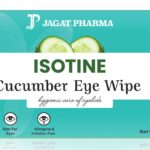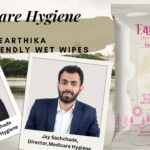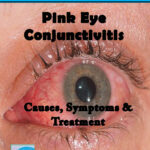The Hygiene Conundrum- obsession for health or utter disregard? Blind folded race to ensure the highest standards of hygiene may not be something without any flip sides. Do we actually need these levels of hygiene? Where lies the fine line?


Scrutiny before Buying:
Once this tide of Covid-19 recedes, life will be very different from what we knew it to be and what we have lived. Some new habits developed during this crisis will stay forever and some which we had until today will fade. Forget the warm hugs with our near and dear ones, even formal gesture of shaking hands too may vanish from our daily lives. Masks, gloves, and sanitizers, which we used only occasionally may stay in our daily lives permanently. Evenings, planned to be lived with friends devouring every single roadside delicacy are already getting spent in browsing for floor cleaners and sanitizers on mobile apps.
The industry has also seen it as a golden opportunity and entire supply chain, from TV commercials to the neighbourhood grocery stores, all are teeming with a plethora of cleaning solutions. In this hunt for perfect hygiene to protect our families from the pandemic, informed by TV ads, WhatsApp forwards, and our own conscience, we are doing whatever we can. Subscribing to an entire gamut of novel sanitary products is one such endeavour. Most of such products stand by the tall claims that they make and help in keeping ourselves safe from harmful microbes. But these novel products have one more dimension that needs to be analysed carefully before giving them space in our lives.
Products can cause some side effects:
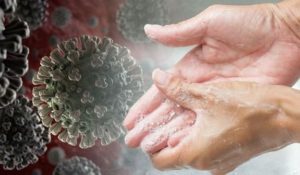

The chemistry inside:
Undoubtedly, these easy to use products bring comfort to our lives, and thanks to the market competition, they are readily available at very reasonable prices. Convenient alternatives such as mosquito repellent coils, mats, creams, and electronic vapourizers have already kicked cumbersome mosquito nets out of many households, but we rarely care about the carcinogens and other poisonous chemicals they contain(Kohli et al, 2014). These chemicals such as Prallethrin, Cypermethrin, Diethylbenzamide etc when used in concentrated forms act as poisonous insecticides, requiring utmost precautions.
But as a part of our daily lives, even in small quantities, prolonged exposure to these chemicals may cause adverse effects on the body. We generally tend to remain ignorant of these effects owing to our hectic lifestyle. Similarly, many of us have a bias to see packaged dairy products and fruit juices as healthy alternatives, but rarely we are concerned about the flavours, preservatives, and sugars which may affect the digestive system adversely(Anand and Sati, 2017). Most of these chemicals have been introduced in our lives for merely a few decades but the rift between the scientific world and industry over their side effects is overtly evident.
Fashion or Need
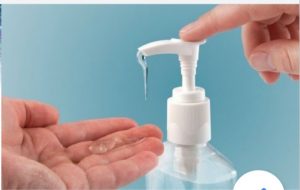

Tall claims of fragrant floor cleaners, glass cleaners, sanitizers, vegetable washes are irrelevant, if their constituent compounds have serious repercussions when used over long terms. Few minutes of introspection is sufficient to realize that a healthy and hygienic life can be lived even without them. On the contrary, we would save our toddlers playing on the floor from harmful effects of Benzalkonium Chloride, iso Propyl Alcohol, and innumerable other volatile organic compounds(VOCs). The intensity with which cancer is prevalent these days, exposure to such novel harmful chemicals might be a dominant cause. Probably we don’t even need many such chemical-based products, but under the influence of effective marketing campaigns of national-transnational giants, many harmful chemicals manage to encroach into our life systems.
Hygiene hypothesis:
Experts in the world of medicine have hypothesized that taking precautions over a certain limit may make us more vulnerable to microbial attacks (Stiemsma et al, 2015). But there is no simple formula to determine this limit. It has to be determined with absolute dexterity, since the balance between protection from microbes and ensuring a robust immunity is a delicate one. The obsession to sanitize each and everything in the surrounding is bound to erode the immunity of any normal person, particularly for growing children(Bloomefield et al. 2006).
The frequency with which we are facing one infection after another and pandemics rocking some part of the globe almost on regular basis, it is important that we don’t end up compromising our immunity in the search of absolute hygiene. WHO has already declared antibiotic resistance crisis and an impending danger on global health, food security, and development. Given a world where new microbes are evolving at an unexpected pace, maintaining our innate immunity cannot be deemed less significant than maintaining hygiene.
What can we do?
In this era full of novel challenges, it is imperative to steer one’s vision and decisions unperturbed by impressive advertisements, fashion trends, peer pressure, and mindless consumerism. It is important to examine those chemicals which have already pilfered into our lifestyle and evaluate the extent of their possible side effects. For the families with kids, elder lies, and pregnant ladies, being vigilant about every new product is the only choice and fully examining the information given on the packaging and brochure is indispensable. The internet is a good source of certified information about many such industrial chemicals and their side effects. Consulting an expert and using these products in the right amount and in the right way is need at the moment. An eye on this other side of the coin will prepare us for the upcoming times.


Ankur Srivastava
Mob: +91-9450600839
Email: ankurs22@iimklive.com
Author Ankur Srivastava is a graduate from IIT Guwahati in Chemical Science & Technology and Master in Business Administration from IIM Kozhikode.
References:
1. www.theguardian.com/technology/2018/jul/14/mobile-phones-cancer-inconvenient-truths
2. Charu Kohli, Rajesh Kumar, G. S. Meena, M. M. Singh, Jyotiranjan Sahoo, and G. K. Ingle; Usage and Perceived Side Effects of Personal Protective Measures against Mosquitoes among Current Users in Delhi; J Parasitol Res. 2014; 2014: 628090.
3. Anand SP and Sati N: Artificial Preservatives and their harmful effects: Looking toward nature for safer alternatives. Int J Pharm Sci Res 2013: 4(7); 2496-2501. doi: 10.13040/IJPSR. 0975-8232.4(7).2496-01
4.www.epa.gov/indoor-air-quality-iaq/ozone-generators-are-sold-air cleaners
5. Leah T Stiemsma,1,2 Lisa A Reynolds,3 Stuart E Turvey,1,2,4 B Brett Finlay; The hygiene hypothesis: current perspectives and future therapies; ImmunoTargets and Therapy, Volume 2015:4 Pages 143—157
6. SF Bloomfield, R Stanwell-Smith, RWR Crevel, and J Pickup; Too clean, or not too clean: the Hygiene Hypothesis and home hygiene; Clin Exp Allergy. 2006 Apr; 36(4): 402–425.



